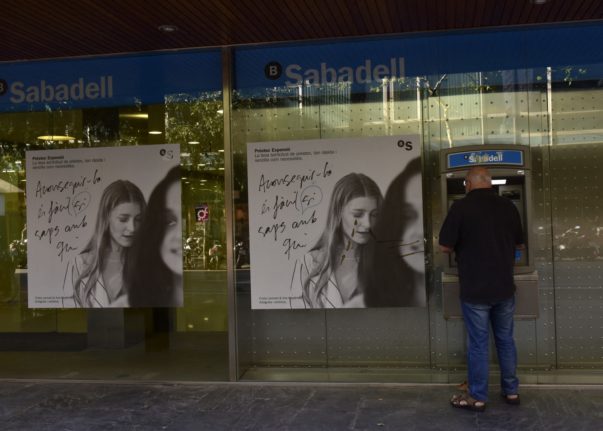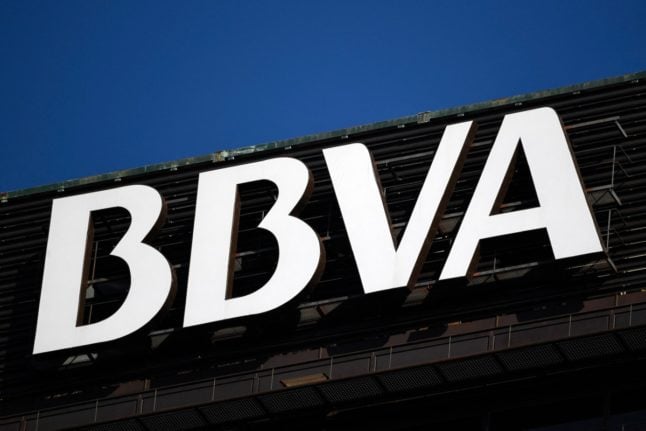Following news that Spain’s second-largest bank BBVA is attempting a hostile takeover bid for smaller rival Banco Sabadell, many customers may be wondering what impact this could have on them if the takeover goes through.
The Spanish government has since vowed to block the move, but BBVA’s new bid came three days after Sabadell’s board of directors rejected a merger proposal, saying it was “not in the best interest” of the bank.
READ ALSO: Spain’s Banco Sabadell rejects BBVA merger offer
The takeover proposal values Sabadell, Spain’s fourth-largest banking group in terms of capitalisation, at nearly €11.5 billion ($12.3 billion).
Though the situation is still developing and Economy Minister Carlos Cuerpo has warned the government “will have the last word when it comes to authorising the operation”, there are a few things that would likely happen in the case that this takeover goes through.
Here’s how it could potentially affect millions of BBVA and Sabadell customers.
What if I have a mortgage with one of the banks?
In case of a takeover or merger, mortgages or loans would not be affected. This is because mortgages are essentially contracts with defined terms and conditions, so they could not be modified unilaterally by a bank after a takeover.
The requirements for interest rates on loans would also stay the same. However, the conditions of linked products (insurance premiums, for example) could theoretically be changed if they aren’t outlined in the contract.
What will happen to my bank card and account number?
After mergers and takeovers, as a general rule, the resulting banks tend to standardise the terms and conditions of their products, as well as their fees. This means that your card or account could gain (or lose) some fees, such as those for issuing a new card or maintaining the account.
This is not usually an immediate process, but be aware that banks can change the terms and conditions of accounts and cards following a merger or takeover.
It is likely your conditions will initially remain the same without much change, but the new/resulting bank may change the conditions later down the road.
However, banks are always obliged to inform customers months in advance of any changes so you can decide whether to accept the conditions or to change bank.
In practice, it is most likely that customers of the absorbed bank, in this case Sabadell, will see their IBAN code changed, although this is a procedure that shouldn’t really change much as it is the bank itself that does it. You’d just need to update your payment details where necessary.
What about investment funds and pensions?
In the case of investment products such as pensions, customers are likely to be forced to transfer their funds into the products marketed by the new bank, as not all banks market the same investment funds and pension plans on offer.
As such, doing this may oblige customers to assume the fees of the other bank.



 Please whitelist us to continue reading.
Please whitelist us to continue reading.
Member comments